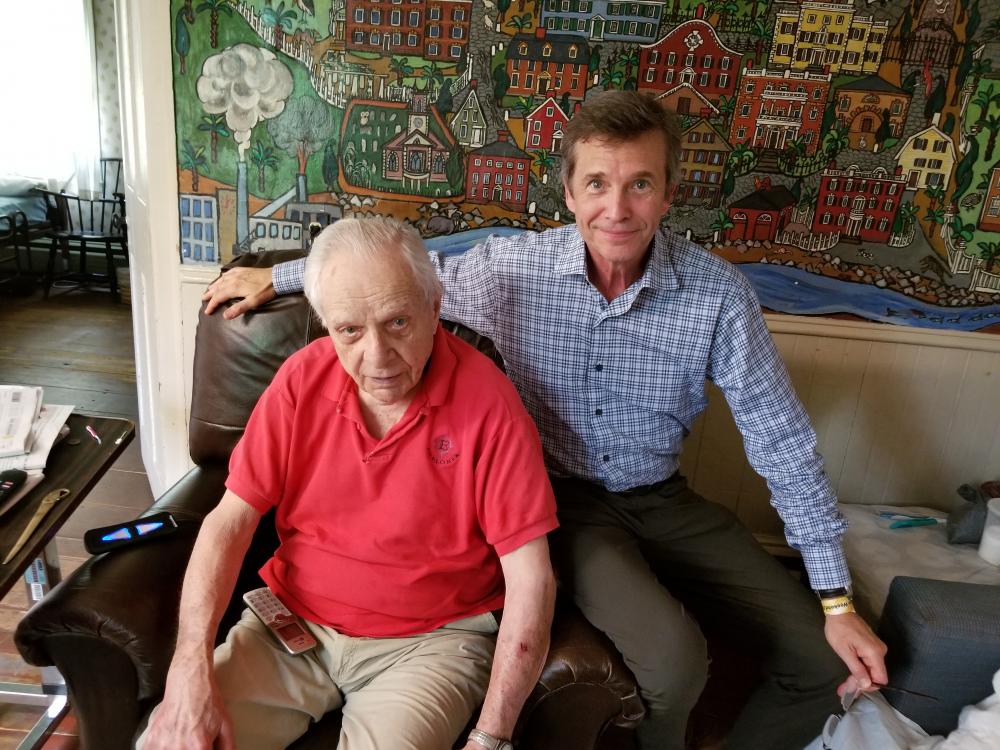Global Experiential Learning and Teaching (GELT)
GELT Information for Students
By participating in a GELT course, students enhance their coursework through hands-on learning, and gain exposure to different viewpoints, people, and experiences. These courses provide an opportunity for an international education experience in addition to, or in lieu of, spending a semester or summer abroad.
Winter 2026

EDUC 500A - Habla Conmigo: Cross-Cultural Language Learning and Teaching
Mérida, Mexico
Application Deadline: October 1
(Application is now closed)
Spring 2026

ENGL 1760E - Who’s Afraid of Virginia Woolf
London, UK
Application Deadline: November 18
(Application is now closed)
What is Included?
Essential travel costs (flights, accommodations, most meals, health insurance for international locations, site tickets) are covered by the GELT grant. As a result of this funding, participation in a GELT course costs similar to enrolling in a Winter Session on-campus course. Students are responsible for their tuition and associated campus fees, including on-campus housing (if needed) during the Providence portion of the course. Financial aid is available to eligible students during the academic year and Winter Session.
Application Process
Students interested in participating in a GELT course, must submit an application for review in Via TRM. GELT courses have a maximum of 12 students, so participation is limited.
Students do not need to apply for GELT grant funding. Faculty who are offering GELT courses have already received the funding to cover travel expenses for the group of enrolled students.
Travel Requirement
Because travel is an essential component of every GELT course, students must travel with their class and fulfill all on-site requirements in order to earn academic credit.
Health and Safety
All participants traveling to international locations will be enrolled in Brown University's International Accident and Sickness Study/Travel Abroad blanket insurance plan and the International SOS 24/7 emergency medical and travel assistance service. Students will be required to register with TravelSafe, Brown's international travel registry, and participate in a pre-departure orientation session. Faculty will also provide an on-site orientation upon arrival.
Please contact Kelly Watts, kelly_watts@brown.edu with questions.
GELT Information for Faculty
The Global Experiential Learning and Teaching (GELT) grant program provides funds for undergraduate seminars that embed an international travel component. These faculty-led courses may be offered in the Winter Session or Spring Semester, with embedded travel during Spring Break. The Faculty GELT application for AY 2025-2026 is closed. The Faculty GELT application for AY 2026-2027 will open in February 2026.
The objectives of the GELT program are to:
- Promote experiential learning within the Open Curriculum
- Create direct ties between on-campus classroom learning and global experiential education, advancing students' holistic Brown academic experience
- Offer courses with an intensive academic focus on a specific topic
- Encourage students to explore new academic areas and geographic locations that align with their interests and academic goals
- Increase accessibility to international opportunities, particularly for students who may not normally pursue education abroad
The GELT program provides up to $40,000 to support travel, accommodations, and related costs for two faculty/staff members and up to 12 Brown students.
If you are not yet ready to facilitate a course off-campus and are interested in requesting support for curriculum development, please email kelly_watts@brown.edu.
Support for the GELT Program
A signature initiative of Brown University's strategic plan, Building on Distinction, the Global and Experiential Learning and Teaching Program is supported by gifts from alumni and friends to the Dean of the College Innovation Fund. One such gift is the Lea E. Williams GELT Award, established in 2018. For general information, contact GELT@brown.edu.
Lea E. Williams GELT Award
Each year, undergraduates from all financial backgrounds have the opportunity to integrate advanced coursework with international experiences for no additional cost beyond the cost of a standard Brown course. Made possible through the generosity of our donors, Global Experiential Learning and Teaching (GELT) grants allow students to connect academic and real-world experiences by traveling alongside Brown faculty and engaging with local scholars and practitioners around questions, issues, and challenges of local and global significance.
One example of this donor generosity is the Lea E. Williams Award, established in 2018, which supports course development and essential travel costs for courses selected by the GELT committee with travel to Asia or another international destination. The award was established in 2018 in honor of Lea E. Williams ADE’60 hon., P’77 AM’77, P’81, GP’14, GP’18, who was appointed Professor Emeritus of History in 1989, after having taught at Brown for 33 years.
Note: While faculty with a particular interest in leading short-term travel courses to Asia are encouraged to apply for the GELT award, neither faculty nor students interested in enrolling in such a course need to take additional steps beyond the general GELT application process to be considered for this award.
I think getting off campus is a very useful experience. Travel has changed my life in innumerable ways and I am delighted that future generations of Brown students will be encouraged and helped to do the same.
 Born in Milwaukee, Wisconsin, Williams was interested in foreign languages from a young age because he was “ready to make mistakes and learn,” he says. Williams was destined to follow the family profession and become a lawyer, but World War II and travel to China changed all that. Williams joined the U.S. Army right after his high school graduation, during the height of World War II, but was sent home during training after coming down with pneumonia. It was then that a chance encounter with a family friend working for the U.S. Department of State set Williams on a path that he calls “serendipitous.” The State Department recruited Williams because he could type, a skill he decided to learn in high school while the other boys were in shop class. It was a decision that ended up changing his whole life, he says.
Born in Milwaukee, Wisconsin, Williams was interested in foreign languages from a young age because he was “ready to make mistakes and learn,” he says. Williams was destined to follow the family profession and become a lawyer, but World War II and travel to China changed all that. Williams joined the U.S. Army right after his high school graduation, during the height of World War II, but was sent home during training after coming down with pneumonia. It was then that a chance encounter with a family friend working for the U.S. Department of State set Williams on a path that he calls “serendipitous.” The State Department recruited Williams because he could type, a skill he decided to learn in high school while the other boys were in shop class. It was a decision that ended up changing his whole life, he says.